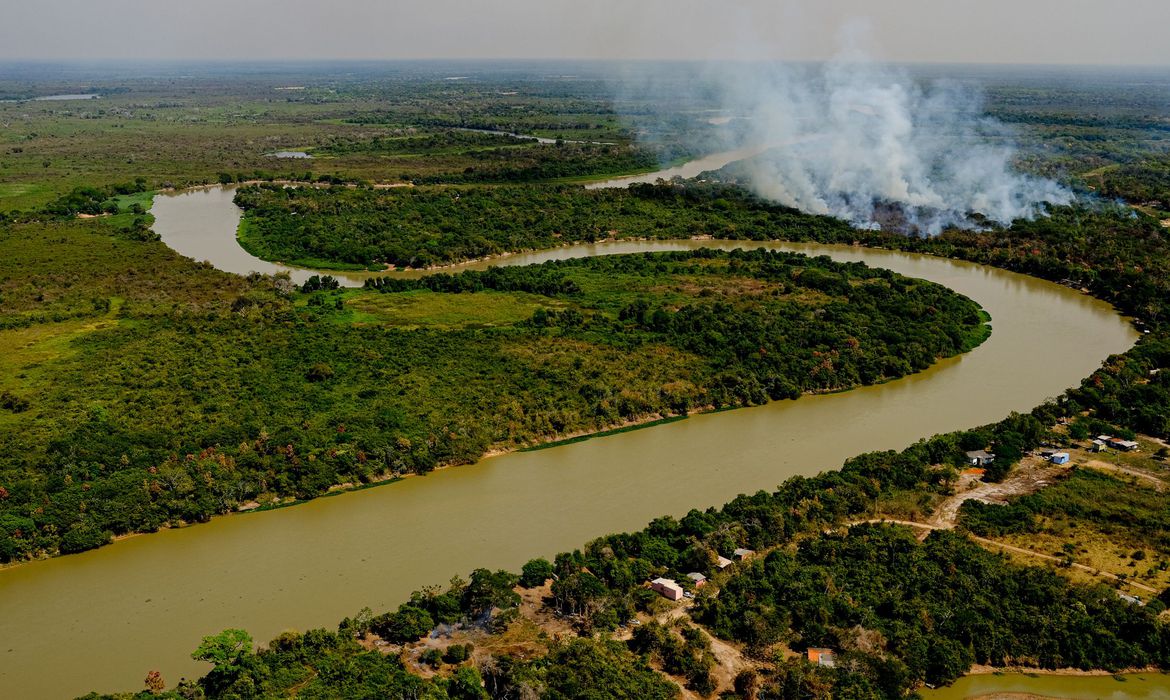
The Pantanal is the largest floodable area on the planet and, renowned for its beauty and biodiversity, a great eco-tourism destination for Brazil.
In recent weeks, the most talked about subject in the country has been deforestation in the Pantanal, especially through arson. By the end of September, almost 3.5 million hectares had been burned – an area equivalent to more than 34000 km².
In addition, there was the recent withdrawal of the rules that protected restingas and mangroves at the National Environment Council (CONAMA.). It is a known fact that those responsible for the pressure to change these rules are luxury hotels and resorts that want authorization for construction closer to the sea. The Public Ministry and civil society are pressing to return with the protective measures, but the moment is of great fragility for Brazilian ecosystems. All considered, the thought that remains is: are we against the environment and ecotourism?
It may seem unnecessary to point out, but this has a lot to do with how much it affects everyone’s life.
Is it always good to remember that, when thinking about planet Earth, there is no alternative or plan B. So, any action in order to protect our ecosystems is intrinsically linked to all human life here.
Just talking about the preservation of that environment is not enough. It may be worth remembering: the potential for economic development that sustainable tourism can bring is enormous, not only with revenue generation but also with job creation. Tourism should be a tool for positive development and transformation and not a pressure mechanism for land occupation that generates large profits for just a few.
Ecotourism and community-based tourism are fundamental activities as a source of income in the Pantanal region – and, of course, disregard for the environment directly affects the lives of thousands of people.
We have had the privilege of getting to know this territory well in the Pantanal Expedition of 2011, and if you want to know a little more about sustainable ecotourism initiatives in the region, click here.
Negative impact
To understand a little about how the deforestation in the Pantanal and the breach of protection to sandbanks and mangroves impact beyond the environment, we can bring some numbers. According to the World Tourism Organization, Brazil earned US $ 7 billion from foreign tourists in 2017. In the same year, Australia, with natural attractions similar to ours, raised more than US $ 41 billion.
The bill is not so difficult to do: there are almost 6 times more revenue for the country. This recipe, in fact, could bring huge positive impacts not only for the environment, but for tens of thousands of people across the country.
With deforestation in the Pantanal and the possible construction of resorts in restinga areas, Brazil loses important points in relation to natural beauty – which, we know, is one of the main attractions for those who travel.
Environmental policies
Treating the environment with the necessary care and attention is, therefore, a fundamental point for the preservation not only of the exuberant nature that Brazil has but also for guaranteeing income generation for thousands of families. It is not easy to measure, but the negative environmental impact caused by the two points mentioned above is extremely serious.
As a nation, Brazil cannot sweep what is happening under the rug. We currently have the opportunity to speak up, in a loud and clear voice that this cannot go on, while uniting people and entities, and truly committing to a different outcome. We are sure: there is no lack of potential to change what is happening.
For now, as a civil society, those who disagree should use their voices to express their disagreement through the democratic avenues available to do so. In this sense, if you, like us, oppose the removal of environmental protection from restingas and mangroves, we suggest you sign the petition organized by change.org. against that specific deregulation or against the leader of them all, here.
It is also possible to contribute by donating to independent entities that seek to combat fires and deforestation in the Pantanal, such as Greenpeace and AMPARA, which is rescuing animals from fires.
We are positive that ecotourism and sustainable tourism can contribute decisively to solving the problems stated. And what is more: environmental conservation needs to be among the main public policies in Brazil.
These have been our reflection points for today. And you, what are your personal thoughts about all these issues?

